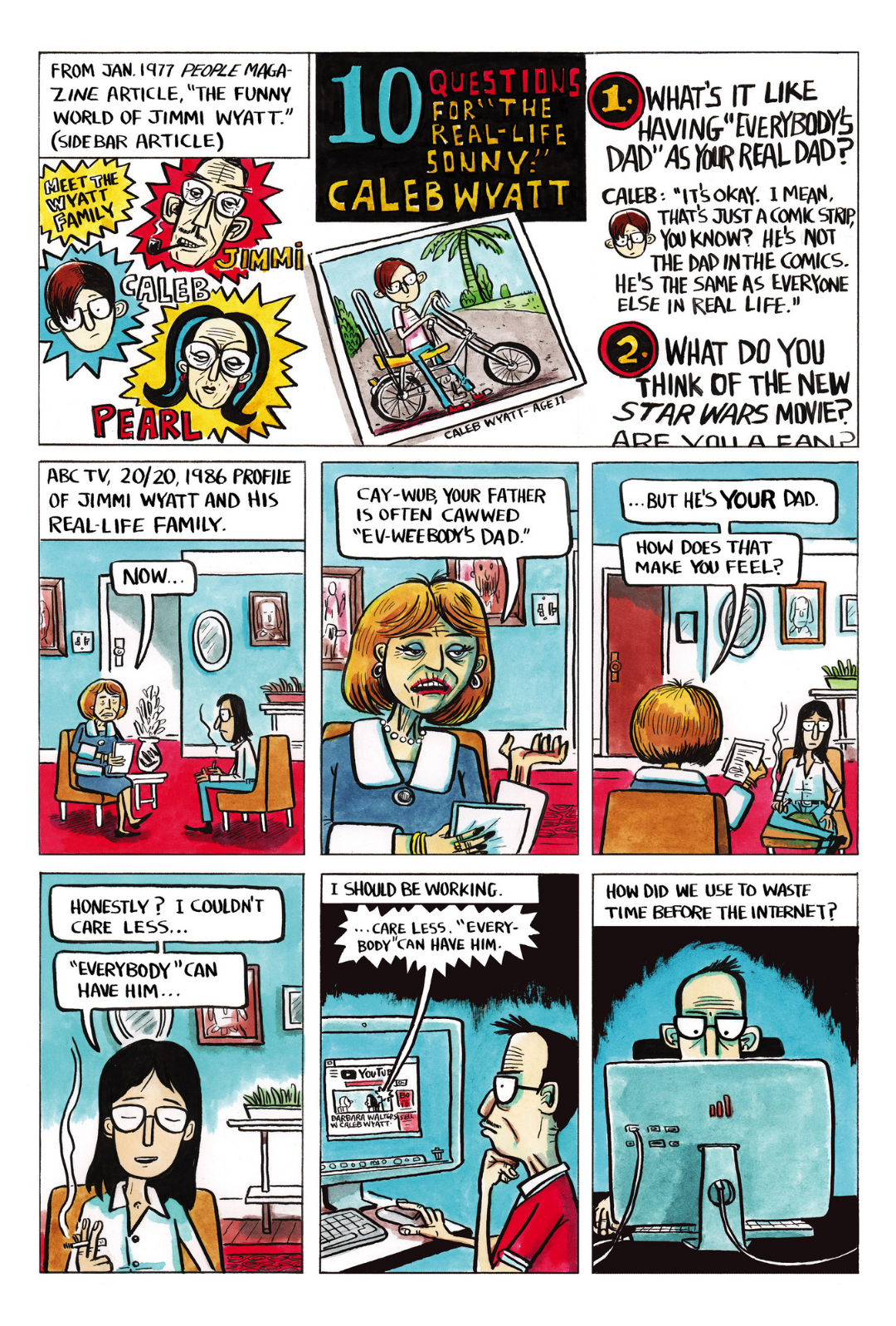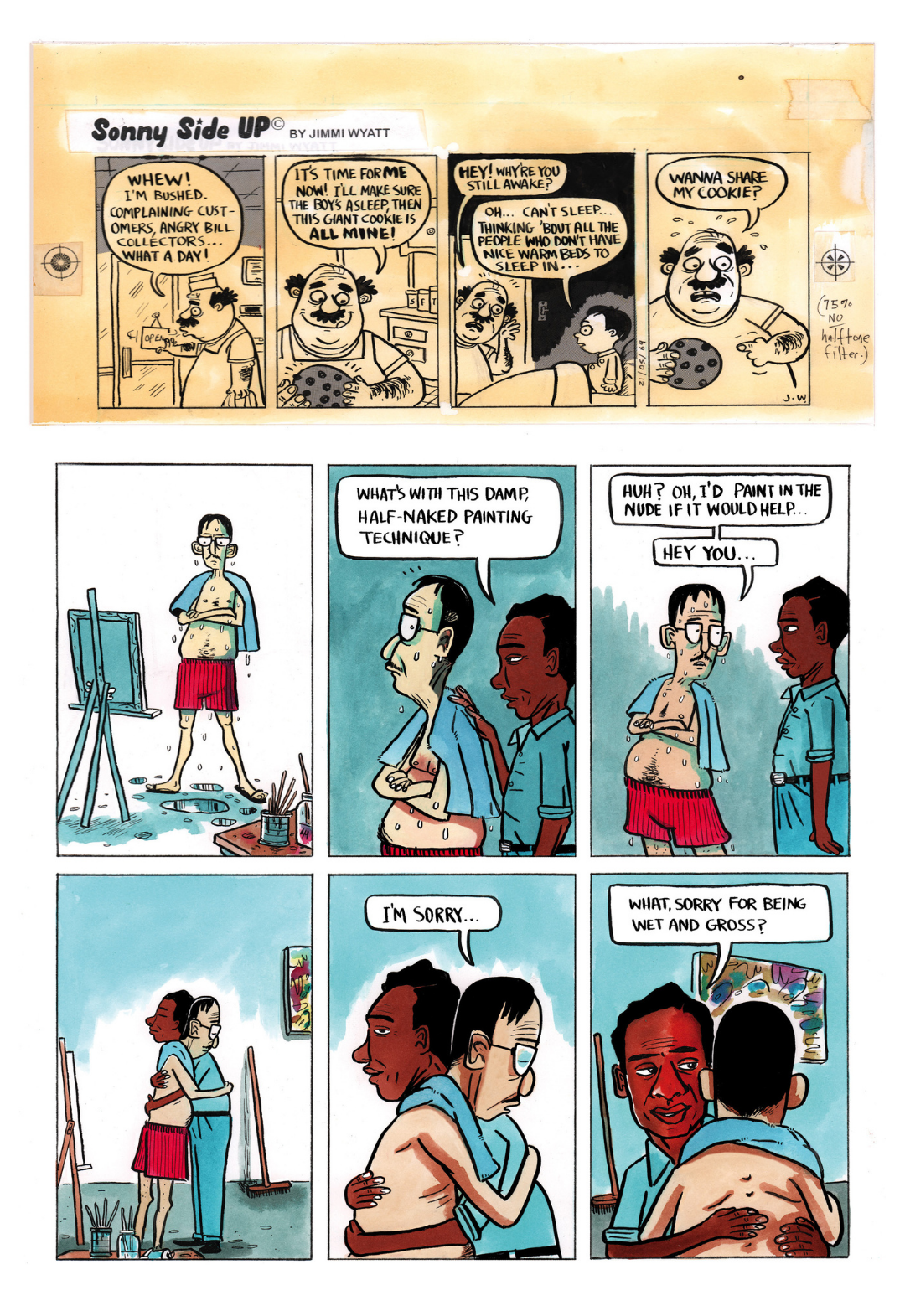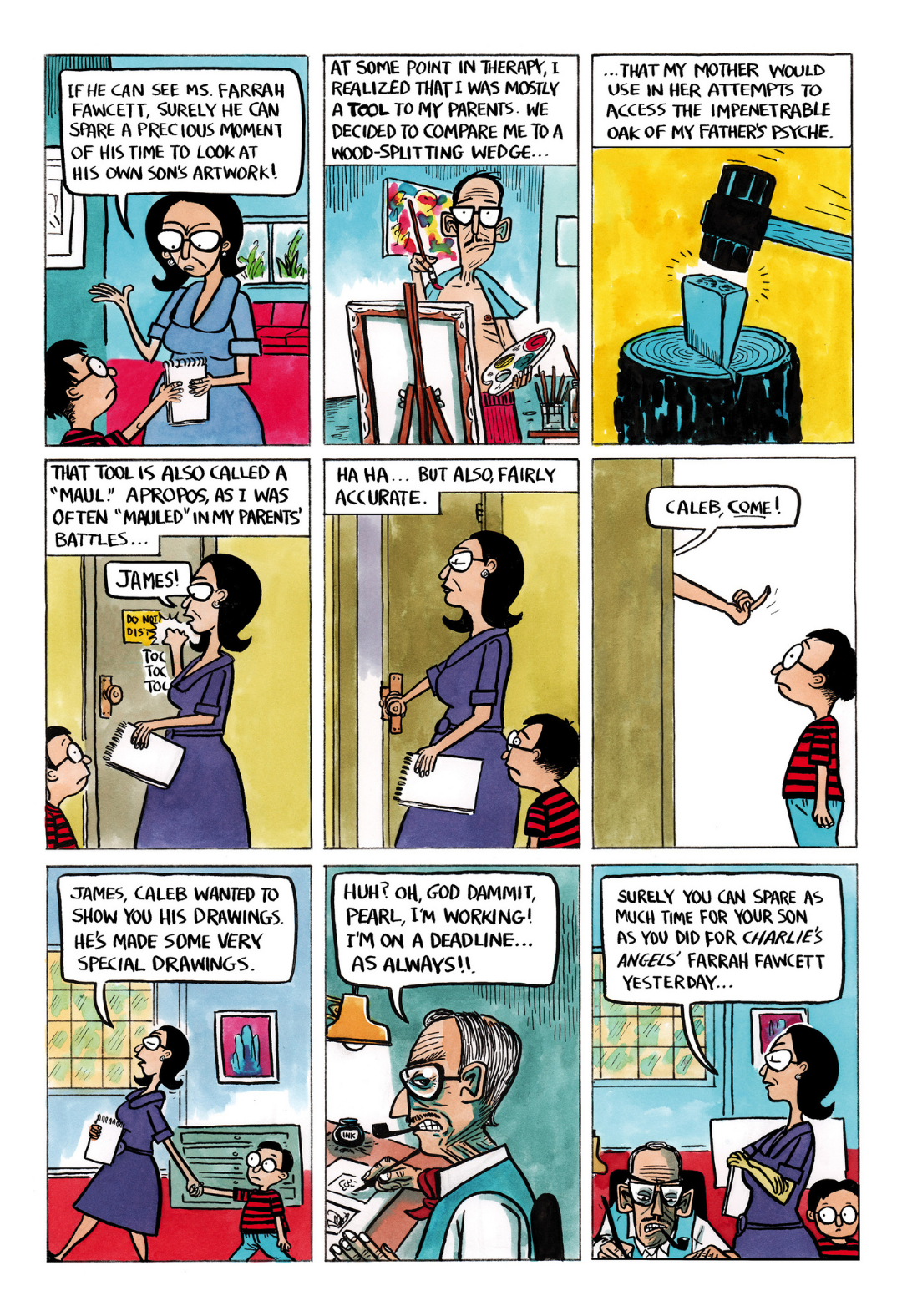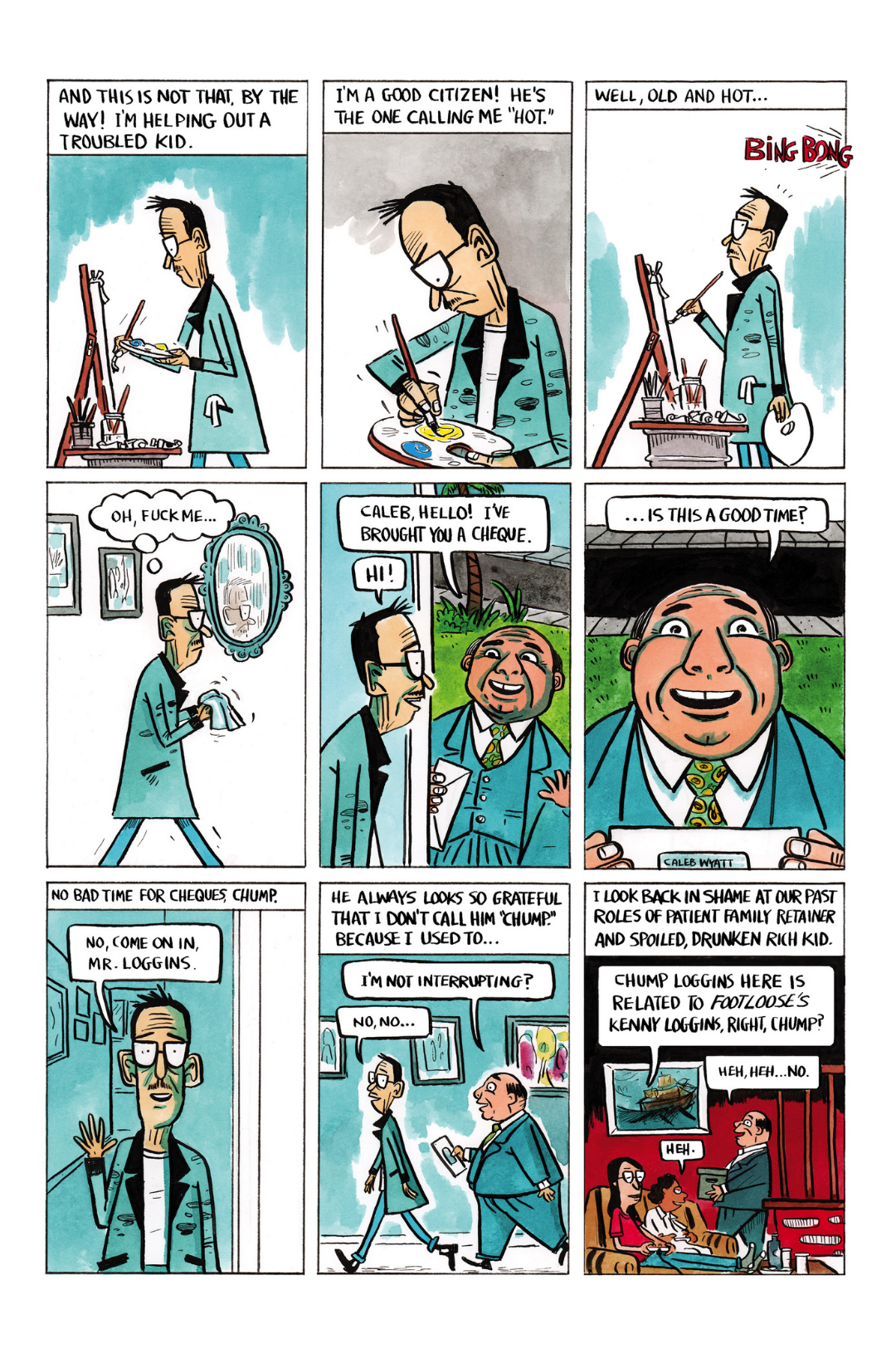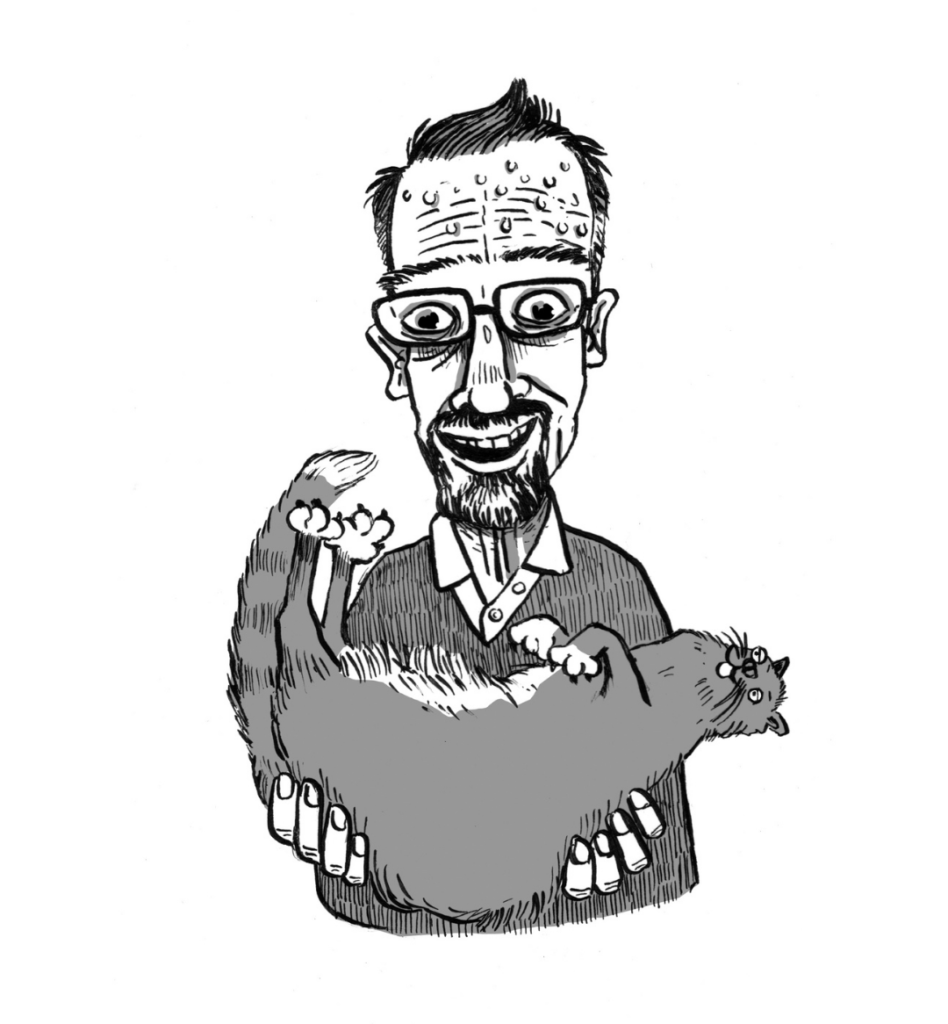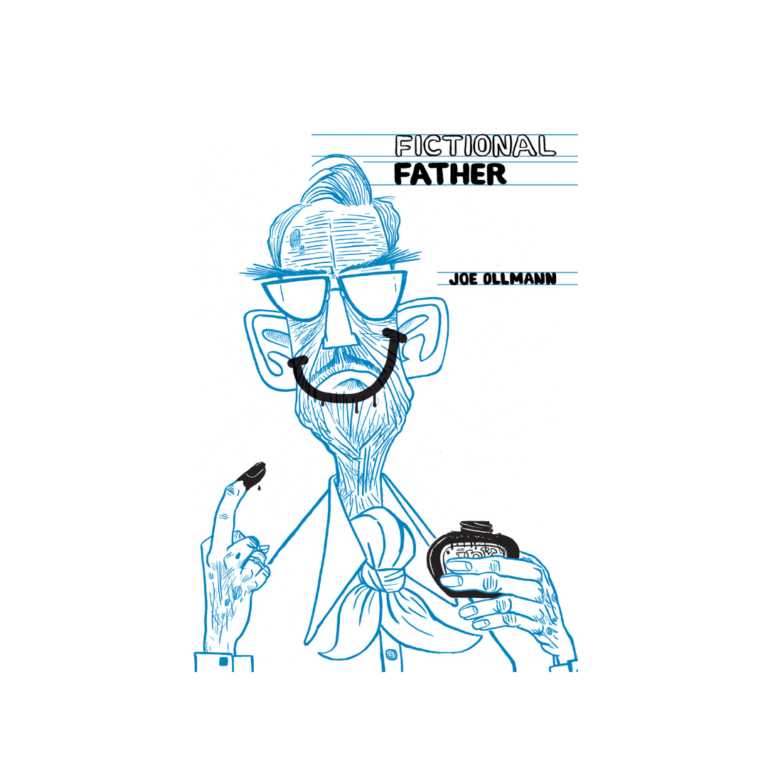Review of Fictional Father
Drawn and Quarterly. 2021. 214 pages.
The father and son relationship is often portrayed as a strong bond formed under the hood of a car or in a sunny fishing boat. For some, this idealized version of the father and son dynamic may stir warm and fuzzy feelings, but many of us cannot relate. In reality, the relationships we have with our fathers are often uneasy. Joe Ollman captures this uneasiness in his graphic novel, Fictional Father. Ollman writes about fatherhood from a son’s perspective, a merciless and critical point of view. In Fictional Father, the father and son dynamic is prickly and, at times, loveless.
Fictional Father is a fictional autobiography of Caleb, the only child of the famous cartoonist Jimmi Wyatt known for “Sonny Side Up,” a light-hearted comic strip about a father and son. A struggling cartoonist himself, Caleb wonders how his father could write about such a loving father-son relationship while their relationship is so strained. Ollman intersperses excerpts of “Sonny Side Up” with Caleb’s own life to emphasize the distance between Caleb and his father. The idealized version of father and sonhood is put in a side-by-side comparison with reality. In one example, a scene from Caleb’s childhood where his father is too busy to look at his drawings is paired with a strip of “Sonny Side Up” in which the father never gets tired of giving his son a piggyback. The cruel irony is that Caleb’s father can write and create a loving father character in his comic strip but he himself chooses not to be that loving father.
Caleb, like most sons, wants a good relationship with his father. He struggles with being envious of his father’s success while also wanting to be nothing like him. While still managing to look up to his father, it is the moments that Caleb sees himself acting like his father that he hates himself the most. Unsurprisingly, Caleb is just as flawed as his father. Ollman writes both characters to be very similar. Both are unfaithful to their partners, and both are driven by their egoistical desires. Despite their similarities, Caleb is still angry at his father for not living up to his fantasy of what fatherhood should look like.
Fictional Father covers themes such as father-son relationships, death, addiction and the woes of the struggling artist. Ollmann writes with grit and humour, making his heavy subject matter a joy to read. The book never feels too dark or depressing because the novel’s artwork adds humour to the narrative. The characters are drawn in exaggerated ways. For example, Caleb’s mother, a nasty, cruel woman, is illustrated with hundreds of wrinkles, tiny puckered red lips, and a permanently disinterested expression. In the same way, Caleb’s father is drawn with a huge head to match his inflated ego.
Caleb’s parents might be drawn like villains, but they are well-developed characters; each parent has moments of redemption. In the same way, Caleb is not the hero of the story. Throughout the book, Caleb makes mistakes and experiences failure. He is petty and egotistical. However, he is likeable, not because he’s a good person or even a decent one. But because he is aware of faults. We get to laugh at his expense, all while secretly relating to his pettiness. More profoundly, though, we relate to his fundamental desire to be loved by his parents.
Whether your relationship with your father is good or bad, Fictional Father teaches us that our expectations for our parents should be realistic and that we are more similar to our parents than we like to think. And if it doesn’t teach you anything, at least you’ll laugh.